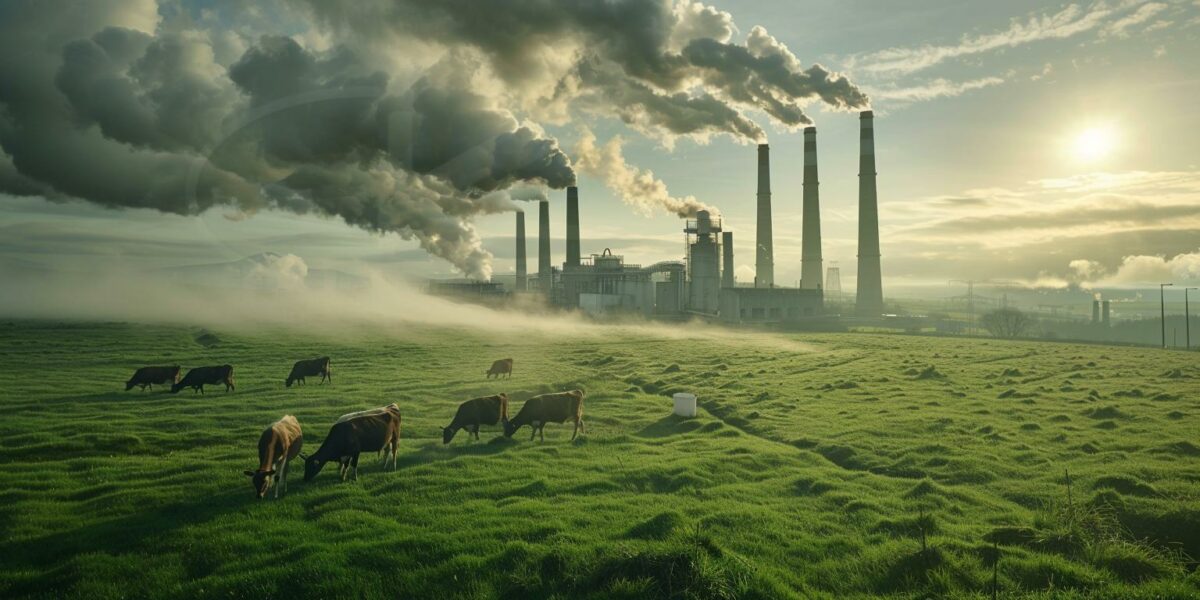The Hidden Impact of Methane
Methane, primarily known for its association with livestock digestion, plays a critical role in climate change. Unlike carbon dioxide, which lingers in the atmosphere for centuries, methane’s lifetime is about nine years. Its warming potential is 84 times higher than CO2 over a 20-year period, making its reduction vital for immediate climate relief.
Recently, the European Union has taken bold steps to cut down these emissions. This new legislation targets methane sources, but what exactly does it cover? Understanding the scope of this law is crucial for effective implementation.
Interestingly, methane isn’t just a byproduct of agriculture. It’s also released during the degradation of waste and in stagnant water. This gas is a product of fermentation, and its presence in the environment is more widespread than many realize.
One of the primary sources of methane emissions is the fossil fuel industry. Unlike CO2, methane is a natural gas used directly in our energy systems. During the extraction, transport, and storage of fossil fuels, methane escapes, leading to significant atmospheric release.
Methane Emissions in Europe
In Europe, the majority of methane emissions stem from agriculture, particularly through the digestive processes of ruminants. However, the fossil fuel industry also contributes significantly. Fugitive emissions from this sector range from minor leaks to massive blowouts, as seen in recent incidents.
Despite the substantial release of methane during fossil fuel extraction and distribution, operators were not previously required to monitor or measure these emissions. This lack of regulation has contributed to the persistent issue.
To mitigate these emissions, it is essential to have accurate data on where and how much methane is leaking. Scientists use a combination of direct measurement methods and atmospheric models to provide a precise estimate of emissions.
In 2019, focused efforts in Romania revealed inconsistencies in reported methane emissions. Through extensive measurements, it became clear that the actual emissions were much higher than officially reported figures.
Romania’s Role in Methane Emissions
Romania, a major oil and gas producer in the EU, has historically reported large methane emissions. However, discrepancies in these reports indicate the need for more reliable data. Our team conducted comprehensive measurements in the country’s main oil-producing regions.
Using vehicles, drones, and aircraft, we gathered data on methane emissions. The findings showed that many installations were leaking, often due to open-ended pipelines and inadequate flaring practices. Infrared cameras confirmed these leaks.
Interestingly, sites with dangerous gas hydrogen sulfide showed better management of methane leaks. This indicates that operators can control emissions for safety but often neglect other installations.
Our research highlighted that immediate reductions in greenhouse gas emissions are possible with better monitoring and maintenance practices. This approach not only conserves resources but also mitigates environmental impact.
A Call for Global Action
Addressing methane emissions does not require new technologies. Simple measures like regular monitoring, leak repair, and equipment maintenance can significantly reduce emissions. Changing venting and flaring practices to capture and utilize gas is also crucial.
Implementing these measures globally in the oil, gas, and coal industries could reduce global warming by 0.2°C by 2100. Broader application across all methane-emitting activities could further reduce warming by 0.5°C.
The challenge lies in scaling these solutions worldwide. Given the EU’s role as a major importer of oil and gas, it has a responsibility to enforce stricter practices both domestically and internationally.
The recent European Green Deal and the establishment of the International Methane Emissions Observatory mark significant progress. These measures include mandatory reporting, regular checks, and restrictions on degassing and flaring, aiming for a comprehensive approach to methane management.



JamesEssence
Does this mean we should all stop eating beef to help reduce methane? 🐄
claraxanadu
This is fascinating. How can we encourage other countries to adopt similar legislation to the EU’s?
ariaempyreal4
Thnks for the info! Methane emissions are a bigger problem than I realized. We need more articles like this.
silas
Why haven’t there been regulations to monitor methane emissions from fossil fuels before? Seems like a huge oversight.
alexanderaurora
Methane has such a short lifespan compared to CO2, should we prioritize reducing it over other greenhouse gases? 🤔
Kylie1
So, methane comes from livestock digestion and fossil fuels?! That’s udderly ridiculous! 😂
jackson
Is there any progress being made in other parts of the world to tackle methane emissions, or is it mostly just the EU?
chase4
Great article! It’s scary to think about how much methane is leaking without regulation. Thank you for shedding light on this issue.
kylie
Wow, I had no idea methane was so much more potent than CO2! What can individuals do to help reduce methane emissions?